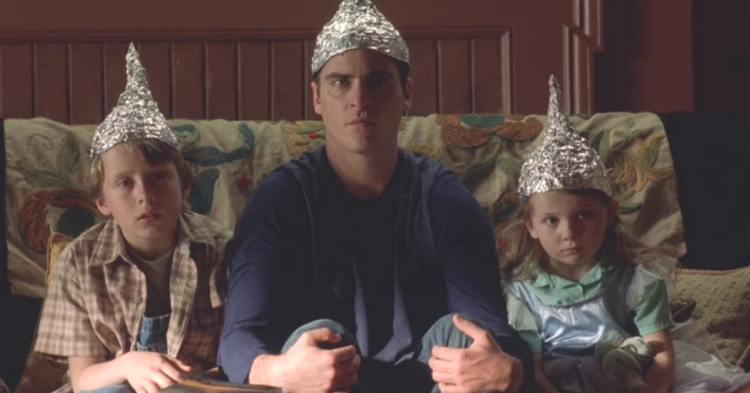One of the things that separates humans from the rest of the animals is our ability to recognize patterns. Our brains just love to sort through seemingly disparate, random things and make sense out of them.
It was important for our hunter-gatherer ancestors to be able to discern food sources camouflaged against the background, or tell a poisonous plant from a healthy one. Now, we have those weird magic eye posters that — if you unfocus your eyes just right — you can find an image of a sailboat or a frog or a rocket ship popping out of.
Unfortunately, there are times when our brains are a little too good at finding patterns, seeing them when they’re not really there. Think of Rorschach inkblot tests, for example. There’s no real pattern to them, but your eyes can pick out something recognizable all the same.
Conspiracy theories take that all a step further.
It’s all just a way of making some sense of out a random assortment of spare parts that don’t quite fit together, but also seem out of place on their own. It doesn’t help matters that some conspiracy theories have turned out to be based in fact, of course. The conspiracy theory about the CIA experimenting in mind control in the ’60s, for example, turned out to be true, as a congressional investigation found in 1975.
But by and large, conspiracy theories are a lot of nonsense, hokum, and hooey that nevertheless have found life in an online audience — the big one being QAnon , of course. So who are the folks coming up with them and sharing them around?
According to a few studies, the people sharing around conspiracy theories are a bit out of place on their own as well.
They’re people feeling lonely and just looking to fit in, excluded from society and feeling meaningless — and it’s a search for meaning that often leads them down the rabbit hole.
One study in the Journal of Experimental Social Psychology found that social exclusion increased people’s susceptibility to superstition and belief in conspiracy theories.
In that study, two groups were put through a pair of experiments.
One group wrote about an unpleasant social situation with their friends, and then rated their feelings of exclusion, their search for meaning, how much stock they put into two conspiracy theories (one about the government using subliminal messages, and another about pharma companies withholding cures), and their feelings on the Bermuda triangle.
Those who reported increased feelings of exclusion also reported more intense searches for meaning in life and were more likely to feel suspicious about those conspiracy theories.
The other group produced similar findings with a noteworthy twist.
In that experiment, a group of college students were made to feel excluded, then read a pair of scenarios about price fixing and office sabotage schemes, as well as one about a good-luck ritual of stomping feet before an important meeting. Again, those who felt more excluded were more likely to feel a connection with the conspiracy theories.
The interesting part was that they were college students, clearly having a good amount of education under their belts. As study author Alin Coman of Princeton told Scientific American , “People think of conspiracy theorists as these weirdos,” but even educated people are susceptible. “Anybody could become entrenched in that kind of thinking if the right circumstances arise.”
Other studies have reinforced that study’s findings, too.
Researchers at Hong Kong University, for example, conducted four studies involving 643 total participants, three of which found that social ostracism led to a heightened likelihood of buying into conspiracy theories. Study author Kai-Tak Poon suggested that there might be more at work than a mere search for meaning, however, putting it down to a matter of survival.
“Social acceptance is associated with various resources like food, protection, and information,” Poon told Dame Magazine . “These are critical to survival. Because access to such resources are blocked for ostracized people, they may feel vulnerable. Theoretically at least, the more intensely they feel the need to quickly identify potential risks and dangers, the more likely they may be to endorse conspiracy theories.”
It’s also worth noting that political leanings had nothing to do with a person’s likelihood of embracing conspiracy theories.
Left-wing, right-wing, and everything in between, it all came down to social exclusion, not politics. Whether you believe that George Soros is some kind of string-pulling ghoul (he’s not) or Bill Gates wants to inject tracking devices with COVID-19 vaccines (he doesn’t) or that 9/11 was an inside job (it wasn’t), it’s driven more by a lack of social supports than by politics or education level, the studies found.
And Poon’s study offered an additional ray of sunshine in that fourth study, in which participants who were feeling socially excluded were no more likely to believe conspiracy theories than anyone else. The reason? They were given a prompt to reflect on their core values. Reinforcing those values might just be the key to dissuading people from latching onto patterns that just aren’t there.
h/t: Scientific American , Dame

















































